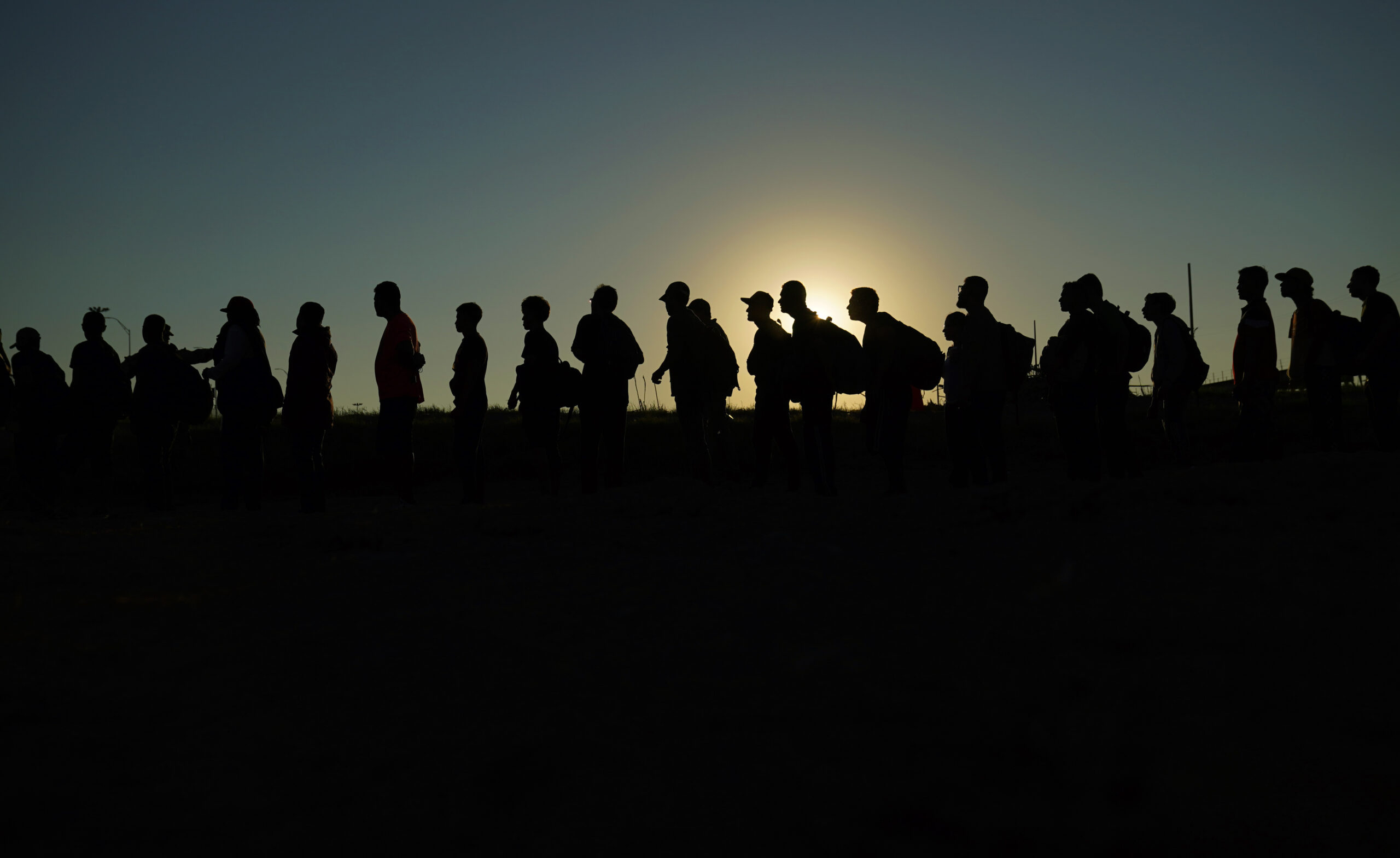
By EFE
05 Oct 2024, 1:47 PM EDT
The United States Government will not allow people from Cuba, Nicaragua, Haiti and Venezuela who arrived in the country with a program known as ‘humanitarian parole’ to extend the immigration benefit for more than two years, a spokesperson for the Department of Foreign Affairs informed EFE. Homeland Security (DHS).
More than half a million people of these four nationalities have entered the country under the program, which began in October 2022 for Venezuelans and was extended to the other three nationalities in February 2023.
The decision, announced less than a month before the November 5 elections, comes amid a shower of criticism of this plan from the Republicans and their presidential candidate, Donald Trump, who also assured that, being elected, would end the benefit.
The ‘parole’, for which it is necessary to have a sponsor in the United States, grants beneficiaries permission to enter and work legally in the country for a period of two years.
At the end of this period, people in this program who have not applied for another immigration benefit “must leave the United States before the authorized period expires (…) or they will be placed in deportation procedures,” explained the spokesperson for DHS, Naree Ketudat.
The Joe Bien Administration launched this program as part of its strategy to stop migration to the United States, while at the same time it began to impose restrictions on asylum on the border with Mexico.
Likewise, it has used the figure of ‘parole’ – contemplated in the Nationality and Immigration Law – to allow the entry of people from Afghanistan and Ukraine. However, unlike the program for Latin Americans, these other two nationalities were allowed to extend their status.
Some 110,000 Cubans, 210,000 Haitians, 93,000 Nicaraguans and 117,000 Venezuelans have entered the United States under this program, according to the latest data provided by the DHS.
What will happen to the migrants when the two years are up?
The ‘parole’, argued a DHS official, is “temporary in nature” and is designed so that people can work while giving them the opportunity “to seek other ways to obtain immigration benefits or other immigration relief, such as asylum or TPS.”
Migrants from Venezuela and Haiti who arrived in the country on parole before July 2023 and June 2024, respectively, can apply for TPS. Cubans can obtain temporary residency through the Cuban adjustment law.
For Nicaraguans there is no type of benefit specific to their nationality, so they should apply for asylum or another type of immigration status.
The same happens with Venezuelans who arrived before the TPS was in force for them, which according to the Government would be more than 50,000 people.
Some instability
Although they agree with the Executive’s reading that the program was intended to be “temporary,” experts consulted by EFE described concerns about the consequences that the decision could have for more than half a million migrants with ‘parole’.
“Some could be left without legal status or lose the ability to work in the meantime,” Yael Schacher, director for America of the organization Refugees International, told EFE.
Many beneficiaries of this program, the expert added, have not yet applied for another type of relief and now they will have to rush to request it.
The ‘parole’ program, recalled Aaron Reichlin-Melnick, an expert immigration lawyer at the American Immigration Council, was born as part of an agreement between the US and Mexico to expel 30,000 migrants of these nationalities each month to the Mexican side of the border.
“USA. created this program at the request of Mexico. (…) It is the other side of the coin of the imposition of immigration law at the border,” said the expert.
Keep reading:
- The United States and Mexico have deported more than 100,000 Central Americans in 2024
- Visa lottery 2026: these are the Latin countries that were left out of the contest
- The US tightens restrictions on asylum at the border: these are the new measures
